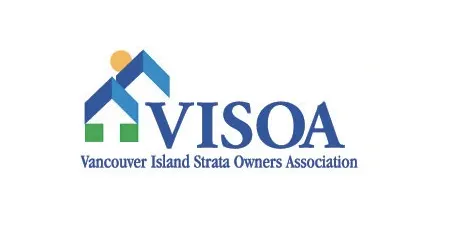
Stratas are governed by a fixed set of bylaws — they can't be changed, except for minor adjustments to day-to-day rules.
Looking to make changes to how your strata building is run? It’s an uphill battle, and takes a lot of planning and effort, but it’s possible. We can show you effective strategies for persuading the strata council and your fellow neighbours. Let’s get after it.
What you should know
Changes to strata bylaws can only be made at a meeting of the owners. There’s at least one meeting each year, called the annual general meeting, where a bylaw amendment can be debated and voted upon. But it could also be at a special meeting. These can happen at any time throughout the year. Typically, they’re called by the strata council. But they can also happen if at least 20% of the owners (often through a petition) ask for it.
So plan for the long haul. A bylaw isn’t the kind of thing that can be changed overnight. It may take several years. If you’re rejected, you can always try again at a future meeting.
“I’d finally bought my dream home — great location, great neighbours, and walking distance to work. But a couple years later, after breaking up with my ex, I decided I wanted a pet. Trouble was, my strata prohibited them. So I took it upon myself to get the bylaw changed. Chatting with fellow owners and getting on the strata council gave me a fighting chance. I couldn’t get it passed the first time I brought it up at our AGM, but I had momentum. The next year, with a few compromises on the types and number of dogs an owner could have, I got it approved!"
– Charlotte, North Vancouver, BC

Changing the bylaws requires a strong majority (a 3/4 vote) to support the change. This doesn’t mean 75% of all owners, just 75% of those who are present at the meeting where the vote is happening. This is an important distinction. Strata meetings only require a minimum number of people in attendance (called a quorum) to run an owner’s meeting. So even if you’re not there, big decisions may be made that impact all owners.
Just so you know — 75% isn’t the threshold for all votes at owner meetings. Most items are just a majority vote (like passing the budget). Rarely, you’ll need 80% or even unanimous support. Check out this guidance for more on strata voting.
The members of your strata council (typically, they must be owners in your strata) are elected each year to supervise the long-term and day-to-day operations of your building. While many councils conduct their business in relative obscurity, in some cases these owners are the most visible members of your strata community. They also run the annual or special meetings of members. This means they’ll be choosing how to frame your issue before that all-important vote.
So getting them on board with your plan, while not legally required, is key.
How to get a strata bylaw change approved
Let’s use the example of overturning a strata prohibition on owning pets.
Contact friends or family members who live in a strata. Do their buildings allow pets? Have they recently changed their bylaws on the issue? Google statistics about pet bylaws in BC. Gather as much information as you can to see if the change is viable.
Take the building’s pulse. Ask neighbours how they feel about pets. Find out what their concerns are. You could even develop a written survey — talk to the strata council about mechanics for this. As in, can you email it to other owners, or should you just slip it under their door? The strata may be reluctant to give out some kinds of personal information for owners, but they are legally required to give you a list of owner names and their mailing addresses.
Try to figure out who the influential people in the building are. This can be owners who’ve lived there for a while, or members of the strata council. If you have their support, they can advocate on your behalf.
As an elected member of the strata council, it will be easier for you to convince fellow council members to back any changes you’re seeking. And having them behind you means more owners may be willing to vote for your bylaw change.
Well before the next annual general meeting (figure on three months), ask the council president about the process for getting onto the board. There tends to be a lot of turnover on strata councils, and it’s an unpaid position, so getting onto the board may be easier than you think. But careful what you wish for. As a board member, you’ll do more than simply advance your agenda for bylaw reform; you’ll have to help manage the building as well. If you become known as “the person who got onto council just to get pets allowed in the building,” that may hurt your chances.
We have more on what's involved in being on the strata council.
Ask the strata council president or the building manager about deadlines for your proposed bylaw amendment. Don’t try to sneak this onto the agenda a few days before it happens. You’ll likely need to let the council know at least a few months in advance of the owner’s meeting.
Prepare a few paragraphs about the bylaw you want to change and why. Make sure to frame the issue as something people can get behind. Highlight how it could increase the building’s value by, say, attracting more millennial buyers. Prepare answers for how the building intends to keep common areas clean. Get it down to a handful of bullet points to include in the meeting package. Prepare speaking notes you can deliver in person at the meeting.
You could also consider holding an “open house” in your building lobby. That way you can meet owners in advance of the meeting and explain your point of view.
Remember, 75% is a very high bar. The pros will tell you that elections are often decided well before the vote. So make sure you have enough support in advance of the meeting. This means making sure influential people show up. Influential owners will often collect “proxies” — these are slips of paper signed by an owner empowering another owner to vote on their behalf. This is often called “block-voting,” and yes, it’s legal.
Strata meetings don’t always go smoothly. If the meeting chair (often the strata president) doesn’t keep order, these meetings can devolve into absurd theatre, with accusations, interruptions, and shouting.
Make sure that when it comes time to vote, all of the votes are counted properly. This will often be done by a show of hands. And don’t forget that some people have either voted in advance by proxy, or have authorized somebody to vote for them. They’ll typically have to show their proxies while raising their hand to get those votes counted.
Who can help

Condominium Home Owners Association of BC (CHOA)
A non-profit that promotes the interests of strata property owners.

Vancouver Island Strata Owners Association
Provides education, resources and support to owners and councils on the Island.

